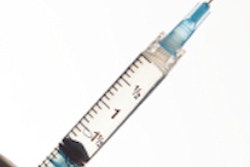
Several presentations at the International Association for Dental Research (IADR) meeting last week in Brazil focused on dental fear and anxiety, including anxiety in children with toothaches, anxiety in patients undergoing implant surgery, and whether fear of pain is inherited.
In one study, Brazilian researchers who monitored dental anxiety levels of 167 children who were treated at public dental clinics in Brazil found significant reductions in anxiety by the fifth appointment.
The longitudinal study measured six assessments of anxiety levels of children with and without toothaches as they waited in a room prior to dental treatment. Data was gathered over a six-week period in which the children received dental treatment once a week.
Although the study showed significant anxiety reduction in both groups by the fifth appointment, children with toothaches not surprisingly had higher levels of dental anxiety than those who had never had a toothache, the researchers reported.
Another study that examined anxiety among patients undergoing implant surgery found that patients were more anxious before surgical procedures, especially female patients.
Another team of Brazilian researchers evaluated 55 patients who had implant surgery (37 were treated at a university clinic, 18 at private offices) and 34 patients who had noninvasive dental care (control group). Their anxiety levels were measured at three different times: during an appointment prior to clinical procedures, just before the surgeries were done, and at an appointment after the procedures were finished.
Not surprisingly, anxiety levels increased on the day of surgery, but patients were most anxious during the appointment prior to the procedures. Also, women were more anxious than men. Patients treated at the university showed higher anxiety levels than those treated in private practice, the researchers noted.
Interestingly, the control group exhibited higher anxiety than private practice patients who were about to have surgery. Patients with lower anxiety during appointments prior to clinical procedures reported that their dental treatments were good experiences.
A related study looked at whether dental fear and fear of pain can be inherited from parent to child. Researchers from West Virginia University and the University of Pittsburgh had 1,371 people (632 females, 739 males; ages 11 to 81) complete a dental fear survey and fear of pain questionnaire. The group included families who were taking part in the protocol for the Center for Oral Health Research in Appalachia.
"Dental fear previously has been shown to be heritable; however, no study has addressed the heritability of fear of pain, a central component of dental fear," the researchers noted.
As the researchers expected, dental fear was heritable, as was fear of pain. Notably, there was a substantial genetic correlation between dental fear and fear of pain.
"There is a high degree of commonality in genes affecting the two phenotypes, though the traits are distinct, as they also are independently influenced by other genes," they noted.
The previously documented association between dental fear and fear of pain appears to be, at least in part, the result of genetic factors, the researchers concluded.



















